One of our biggest takeaways from State of Social 2024 was the evolution of zero-click searches and the impact it will have on the way we do search engine optimisation (SEO).
In 2024, nearly 60% of Google searches have ended without a click. The way we find information online is changing; the faster, the better. So how will this impact the way users find your brand online? We’ll cover that further into this article.
What are zero-click searches?
Zero-click searches occur when Google shows the information someone is looking for directly on the search engine results page (SERP), so they don’t need to click any links. This is done using features such as featured snippets, knowledge panels, local packs and more. The goal is to give users immediate answers and make searching easier by reducing the steps needed to find information.
It’s likely that you’ve already conducted a zero-click search without even knowing it. Here are some examples of what these look like:
Featured Snippets
A Google featured snippet displays specific, organised pieces of information directly in the search results. These snippets pull key facts from a web page and present them in a clear, structured format, right below the website link. This helps users quickly find relevant details without having to click on the web page.
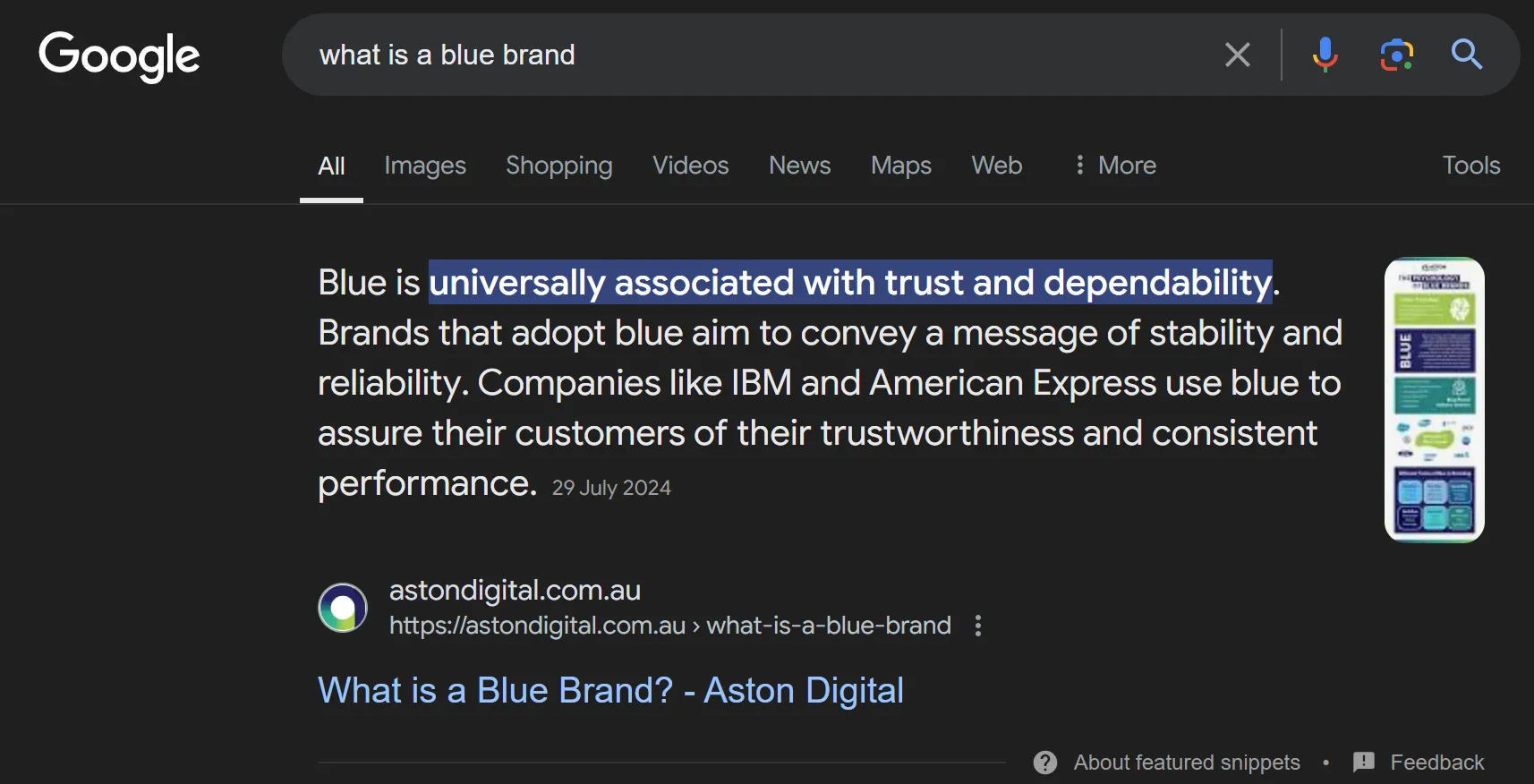
Knowledge Panels
A Google Knowledge Panel is an information box that appears on the right side of search results, providing a quick overview of key facts about a person, place, organisation, or topic. It aims to give users a snapshot of important information without needing to click through to different sites.

Local Packs
A Google Local Pack appears at the top of search results when users look for local services or businesses, like a restaurant or shop. It displays a map along with a list of three relevant businesses, including their names, ratings, addresses, hours and sometimes reviews or photos. The Local Pack helps users quickly find nearby businesses and get key information at a glance without having to visit multiple websites.
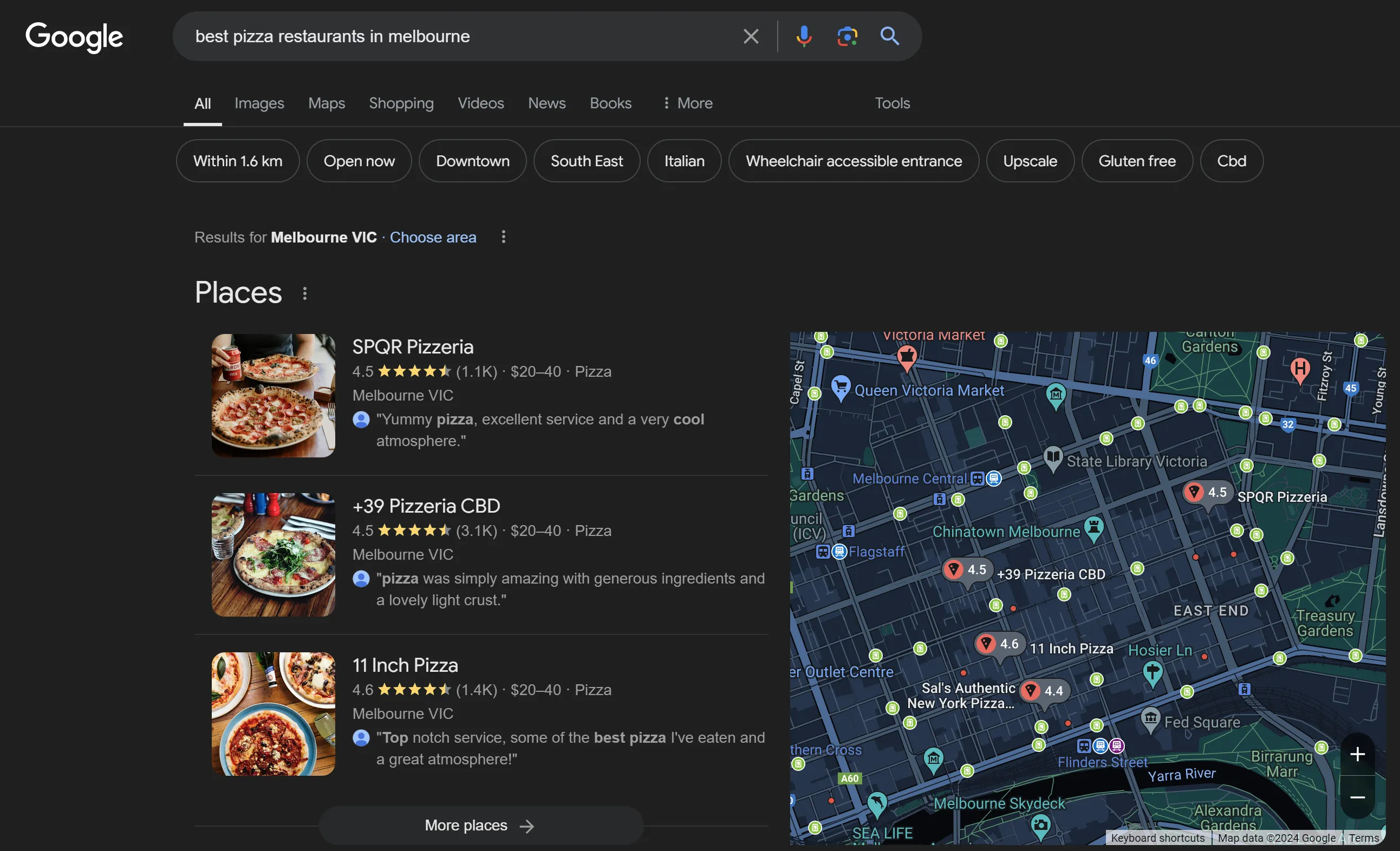
To further enhance the zero-click experience for users, Google is experimenting with AI Overviews.
What are Google AI Overviews?
AI Overviews bring generative AI into regular Google Searches to give users quick, AI-generated summaries and context for their search results. These AI-generated responses are positioned above traditional SERP links and affect the way outbound links and ads are displayed to users. Rather than seeing a list of websites in SERP after doing a search, you’ll see an AI-generated summation of the information you have searched.
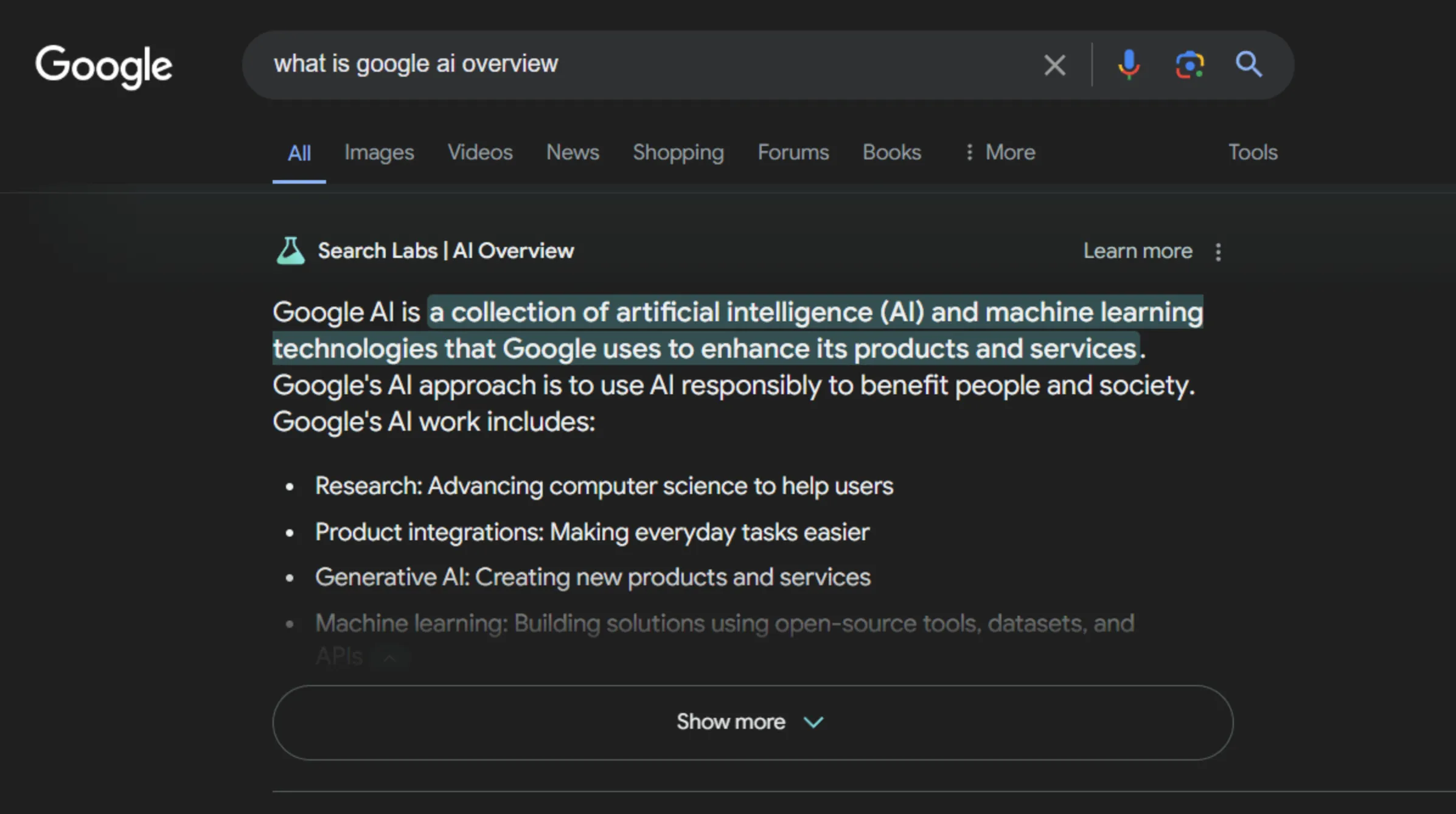
In case you’re already trying to find it, AI Overviews are not currently available in Australia. However, with 120 other countries already using it, it can’t be too far away.
Why aren’t Google AI Overviews available in Australia?
Interestingly, Australia is one of Google Ads’ largest markets. It’s likely that Google doesn’t want to tamper with that by reducing the need for paid search ads. For once, we are not the guinea pigs in this digital experiment!
What challenges will Google AI Overviews bring for brand visibility on SERPs?
1. Fewer Outbound Link Clicks
It will deliver fewer outbound clicks which will become a major challenge for brands that rely on Google search as their primary source for website traffic.
2. Less Brand Control
Brands will have less direct influence on how Google displays information about them.
3. Reduced Ad Engagement
With AI Overviews dominating SERPs, it will likely mean reduced visibility of paid search ads. This one is up in the air at the moment.
What do you need to do now?
It’s still very unclear when AI Overviews will become available in Australia, and how quickly, or how deeply it will be rolled out. As more information is released, we’ll have a better understanding of the impacts it will have on things like Google Ads and SEO. We’re all on this ride together!

Once upon a time, Black Friday was a single weekend event that followed Thanksgiving in the U.S. It's basically their version of Boxing Day sales but with [...]
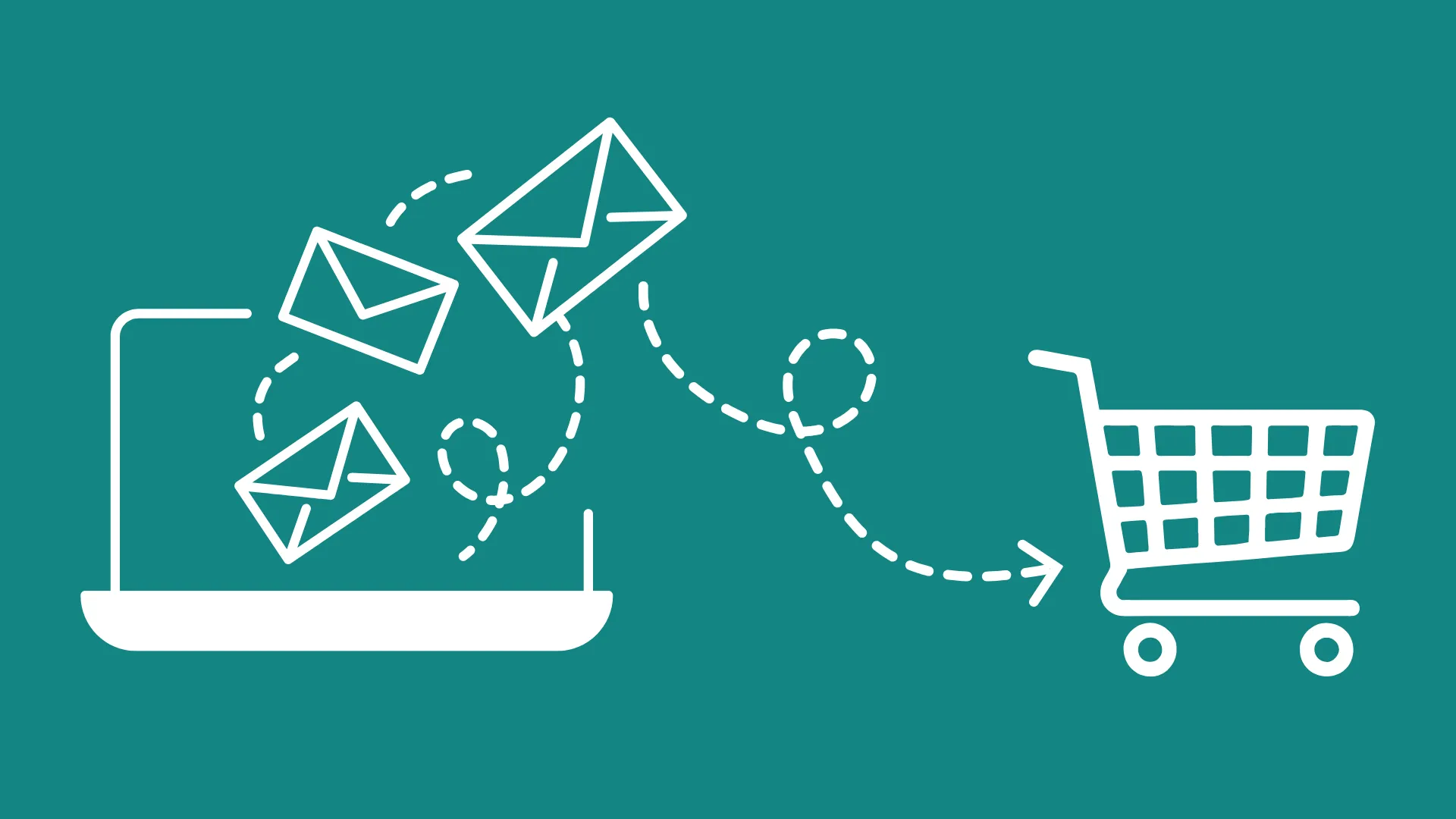
People are opening your emails. They’re clicking your links. But… they still haven’t converted. You're first reaction is probably, "My emails aren't working." But that's not actually [...]

We’ve entered a new era of marketing - one where your content is no longer just read by people. It’s interpreted by AI. From Google’s Search Generative [...]
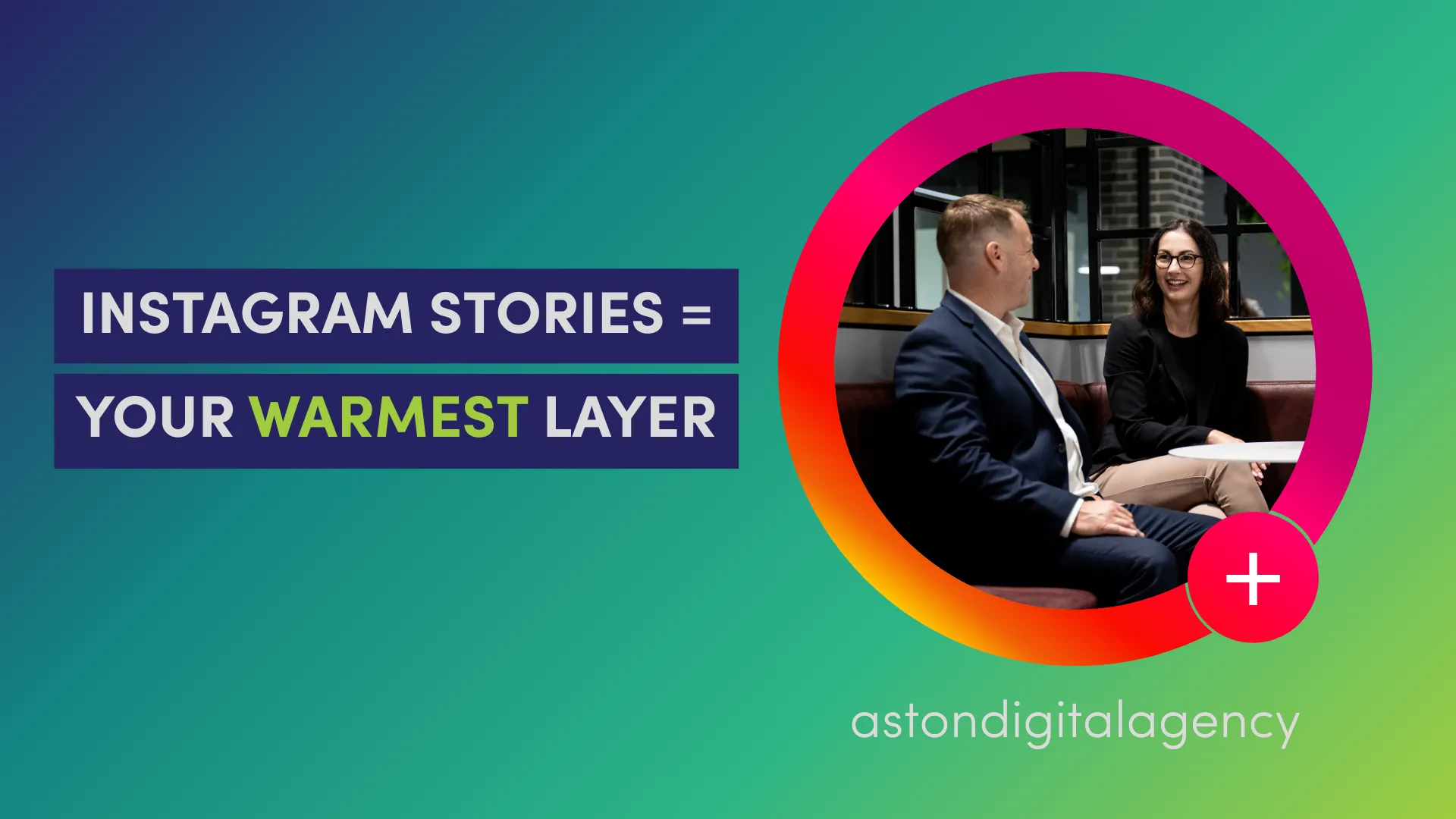
Most organisations are obsessed with reach - and so they should be. They want new audiences, new eyeballs, new followers - who doesn't? They pour budget into [...]
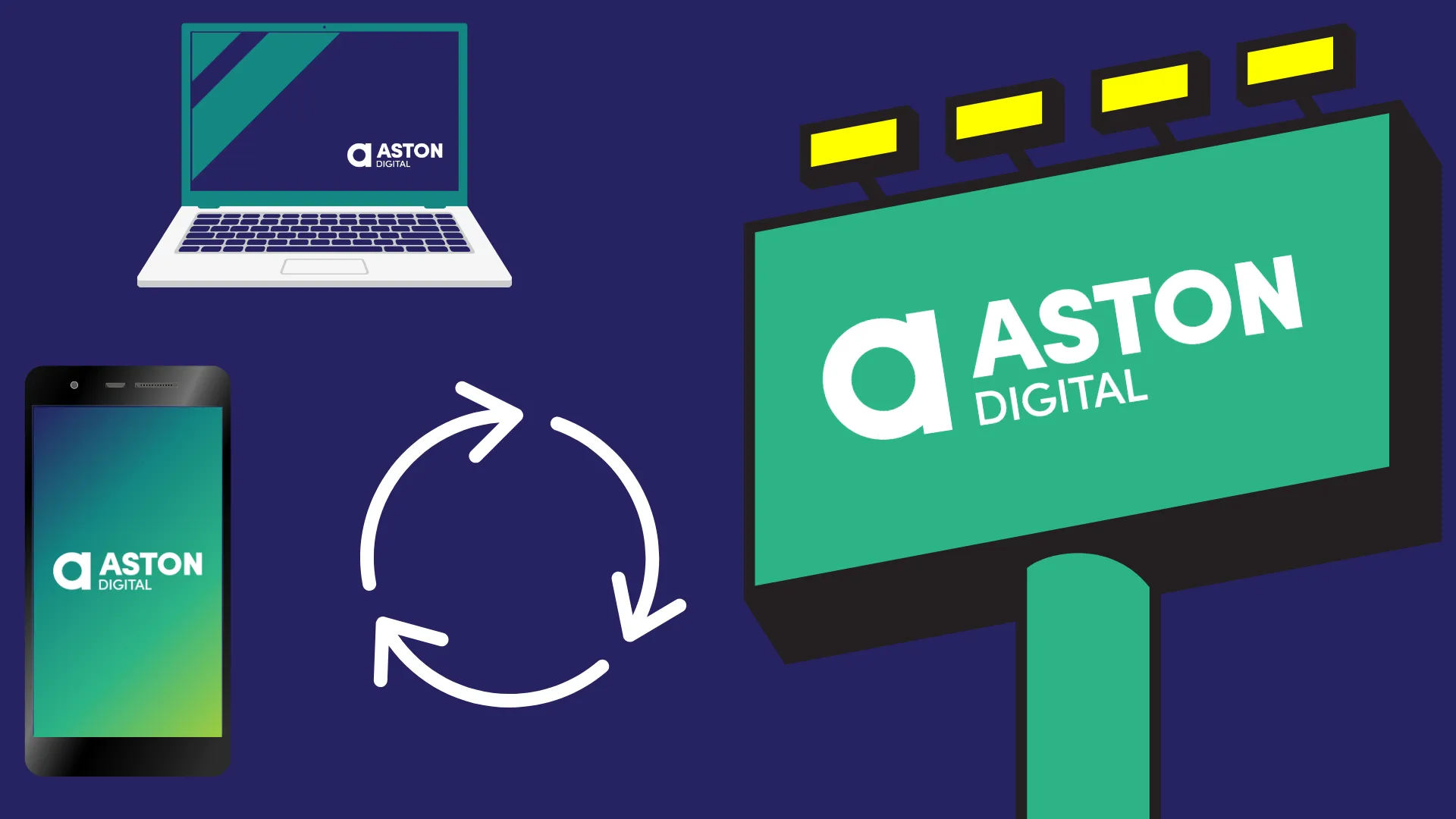
Recently we explored the Mere Exposure Effect - the psychological principle that says people tend to develop a preference for things simply because they’re familiar with them. [...]
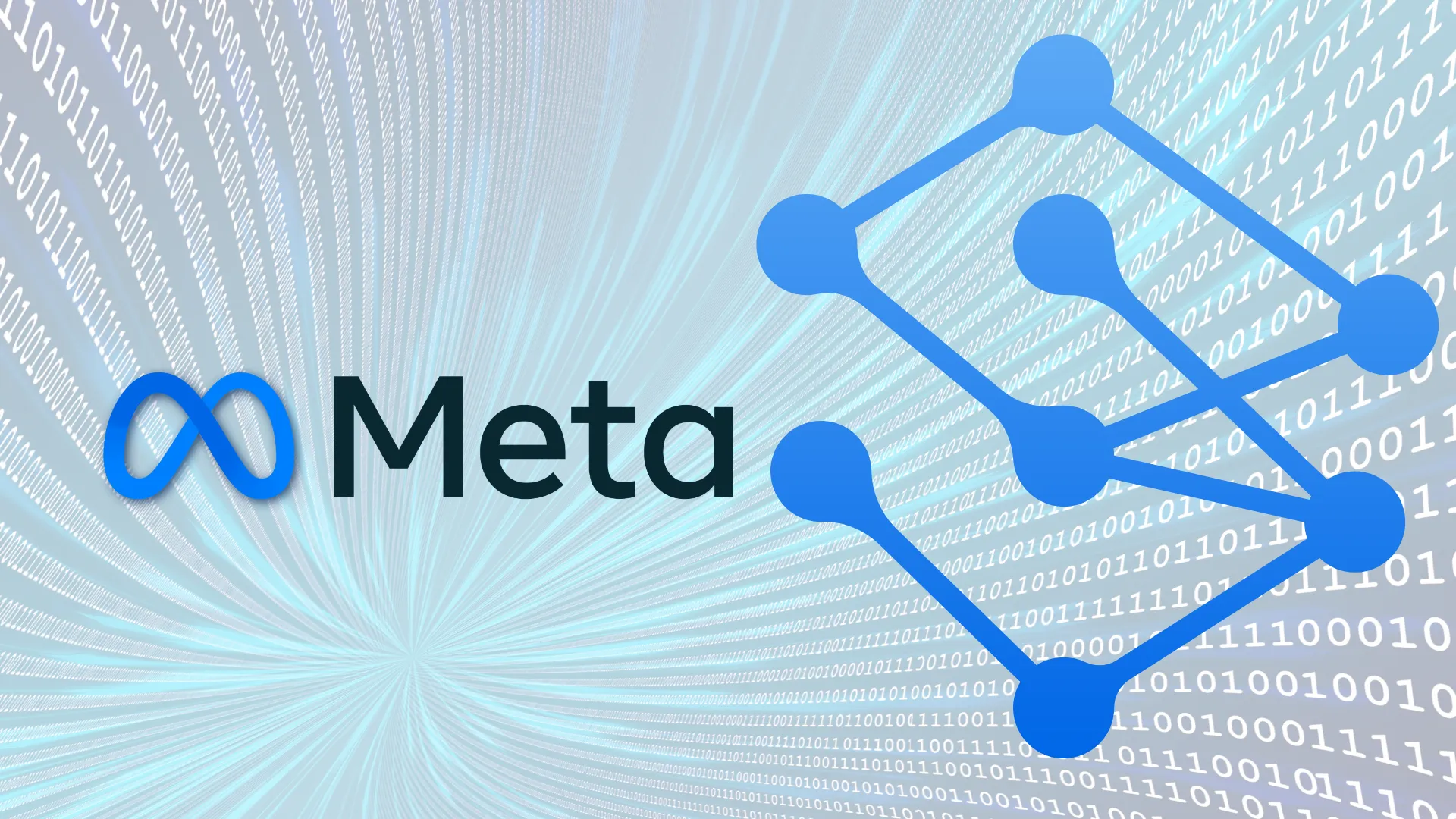
For years, Meta ads were managed like a machine you had to constantly tweak. Adjust the bid strategy. Restructure the campaign. Turn off underperformers quickly. Optimise daily. [...]

If you're finding your Meta ads lately are becoming more expensive and less effective, the problem probably isn't your targeting or your budget. The Meta Ads algorithm [...]

For years, follower count was treated as the ultimate measure of success on social media. More followers meant more reach, more influence and more credibility. In 2026, [...]
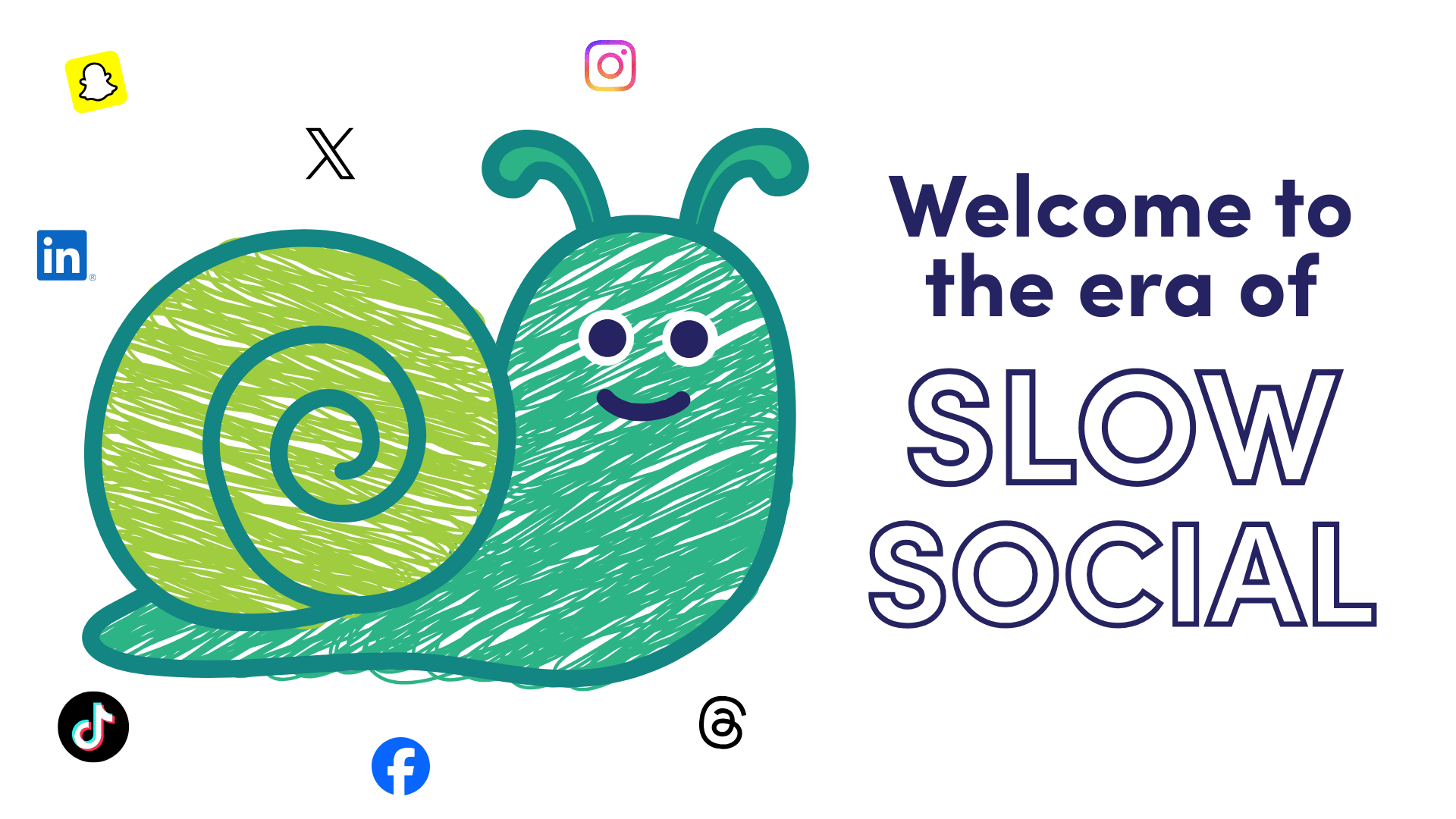
Something has shifted online this year, and if you work in marketing, you’ve felt it. Feeds feel noisier, yet somehow emptier. Search results loop endlessly. Trends peak [...]

Engaging with your audience may be more powerful than most social media teams realise. A new data study from Buffer has revealed that responding to comments on social [...]

Once upon a time, Black Friday was a single weekend event that followed Thanksgiving in the U.S. It's basically their version of Boxing Day sales but with [...]

People are opening your emails. They’re clicking your links. But… they still haven’t converted. You're first reaction is probably, "My emails aren't working." But that's not actually [...]

We’ve entered a new era of marketing - one where your content is no longer just read by people. It’s interpreted by AI. From Google’s Search Generative [...]

